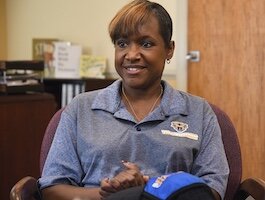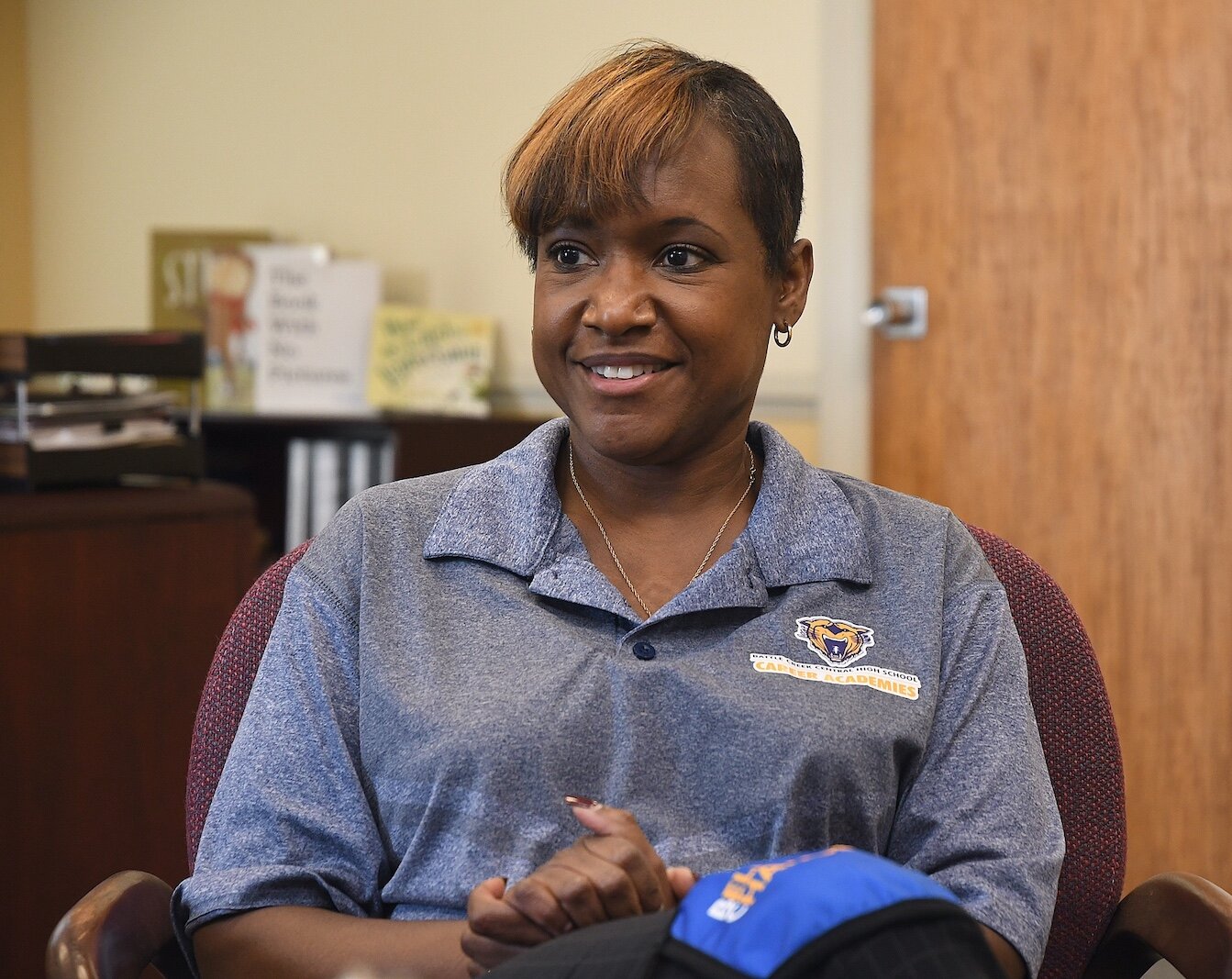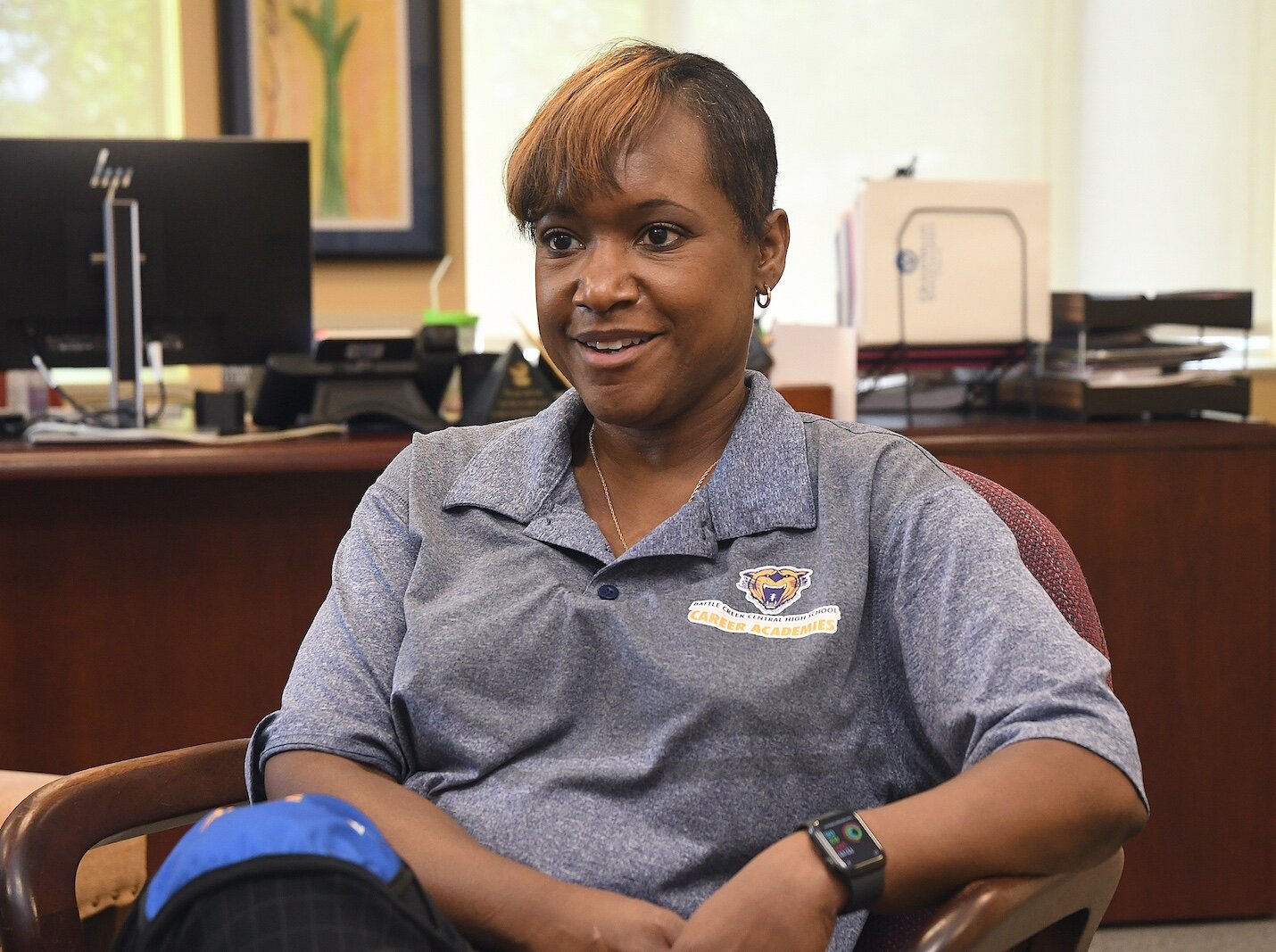Para leer este articulo en español dale click aqui.
Earlier this year Battle Creek Public Schools became one of two school districts in Michigan to offer real-time Spanish interpretation of their school board meetings.
Jose Orozco, Executive Director of Voces, says the decision to offer the simultaneous interpretation was something of a risk for BCPS because they didn’t know if Spanish-speaking families would show up, but they did, and he says this is another example of the way the school district is continuing its commitment to students and parents in the Latinx community.
“Spanish-speaking families were jumping onto Zoom. They were showing up so we know that the interest is there,” Orozco says. “Detroit was the only other school district that we know of that is offering simultaneous translation. This is huge that from the top this has been prioritized by BCPS. It tells me that they do want to listen to our community.”
Catherine LaValley, President of the BCPS School Board, says she was surprised to learn that so few school districts provide translation services like this.
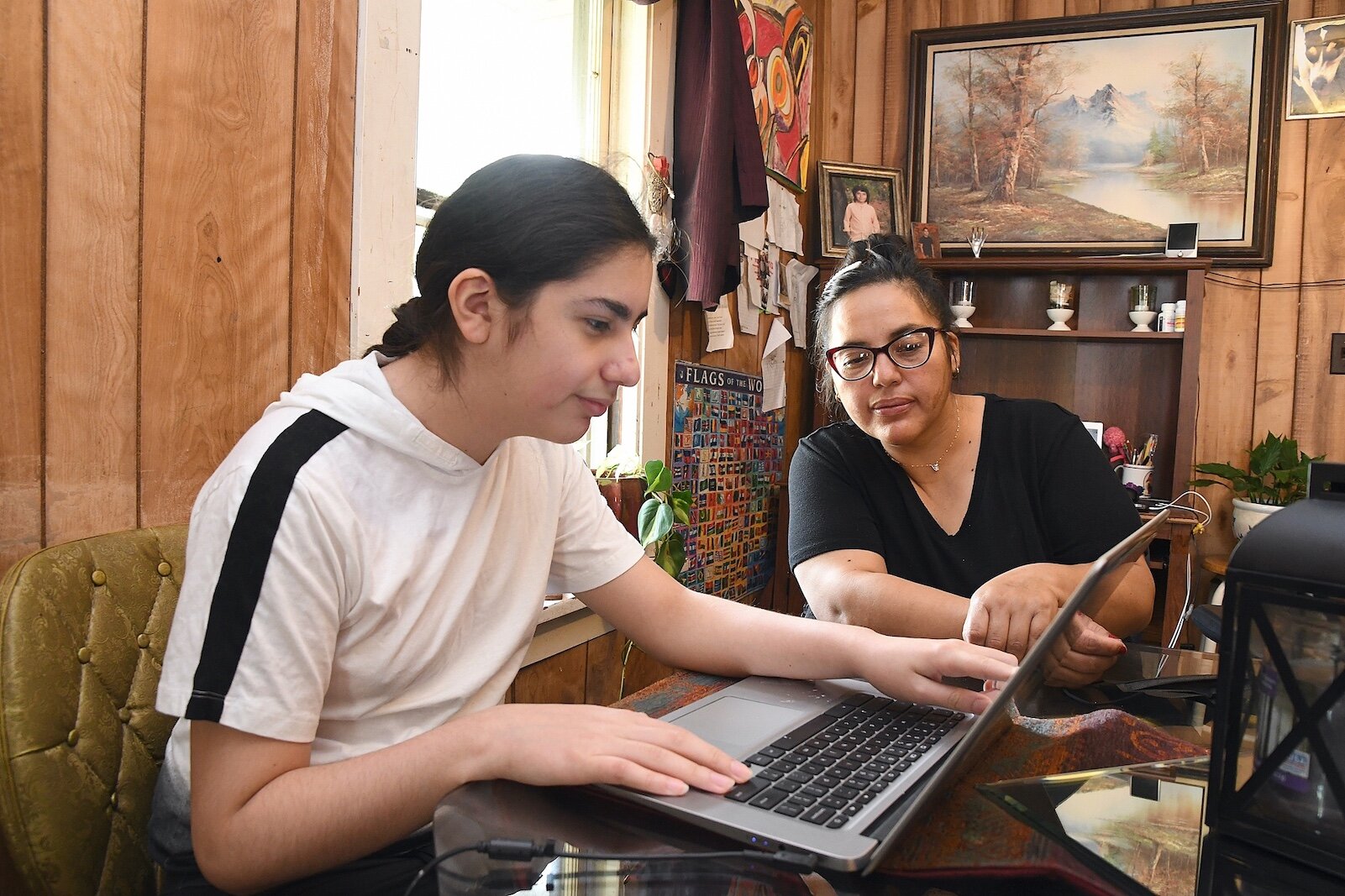
“I hope our Hispanic community has gained from this. It’s a new learning experience for all of us,” she says. “I think it sends a message that we see you and we hear you. It’s all about doing the best that we can to provide messages and communications that Hispanic families learn and gain from.”
Efforts like this go back to an equity statement drafted five years ago by BCPS that highlights the school district’s commitment to ensure that each of its students will receive a high-quality education, LaValley says.
“At BCPS, we have an equity statement that includes a statement that ‘all kids will be learning.’ We put that statement together because we want to disrupt the systems that might keep students from learning,” she says. “We have worked with the National Equity Project and Truth & Titus here in Battle Creek. They have been instrumental in providing professional development and having conversations with our staff members.”
Relationships with these organizations are among the learning opportunities that led to the hiring of a full-time ELL (English Language Learner) coordinator at the district level “to make sure that all ELL teachers have the training and resources they need,” says BCPS Superintendent Kimberly Carter. This coordinator, she says, “will oversee all ELL tutors to make sure students are successful.”
Currently, BCPS has five full-time ELL teachers and eight ELL tutors.
“Right now we are in the process of looking for more bilingual staff for the upcoming school year,” Carter says.
Strengthening Connections with Families
Although it was not new, Carter says navigating through a school year in the midst of a pandemic reinforced the importance of relationships and connections to make sure that all families and students are personally connected to the schools and know how to access supports and resources.
Italo Ortizsosa was among thousands of students in the Battle Creek Public Schools system who had to pivot quickly to a new way of learning when the pandemic shut down his school.
He went from being surrounded by other students at Northwestern Middle School to cocooning himself in his bedroom upstairs or working at a table near the kitchen and living room on the main floor of his family’s home.
“It was OK. It was fun, but a bit distracting because it was home,” says Italo, 13-years-old, who will be a freshman at Battle Creek Central High School this year. “At first, we did have problems with the technology because we didn’t know how to use it, but then we asked the teachers, and everything was fine. We could always call somebody.”
His mother relied on Italo or his sister to help her find school-related information, including parent-teacher conferences.
“For the parents in our culture that personal touch is very big and schools not being able to do in-person parent-teacher conferences or connect a face with a name was tough for our parents,” Orozco says. “To ask them to jump on a Zoom parent-teacher conference run on a computer was going to be hard for parents. The school interprets that as ‘mom and dad don’t care because they didn’t show up.’”
Given this scenario, he says, “you can see why some schools think parents are not engaged in learning.” When actually it is a matter of overcoming the challenge of technology.
Facilitating the shift to virtual was Parent University. It covered topics such as accessing resources and taught ways to get involved with the schools. The school district also has a Latinx Parent Advisory Council.
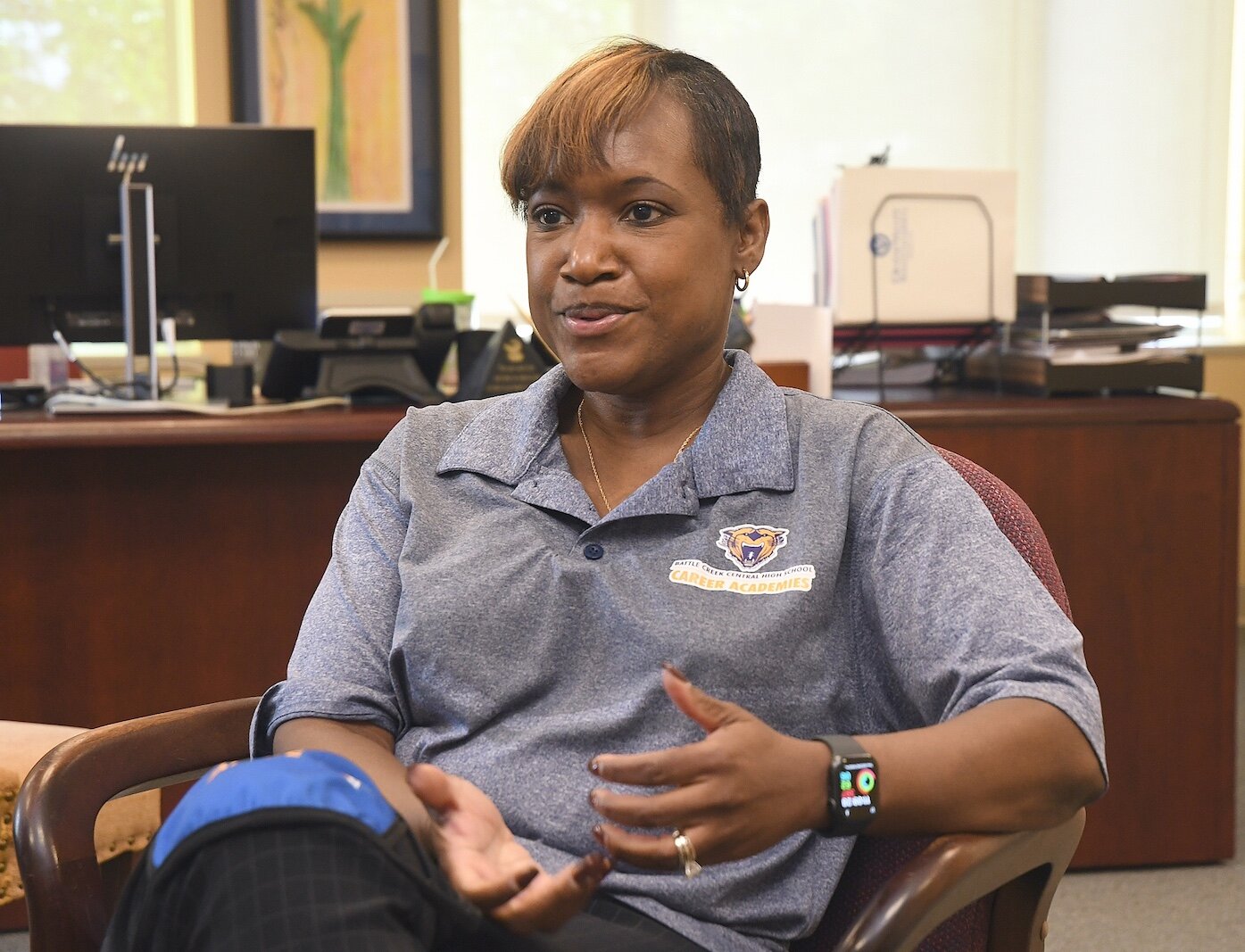
Carter says she understands that “many of these families are not comfortable in a virtual setting. We’re hoping to bring them back to the Computer Lab to show them things such as how to access their student’s grades. We want to model and show families. There are actual classes throughout the school year that parents can sign up for.”
BCPS also will again be offering some Parent University courses specific to Latinx families and another set of courses specific to Burmese families. Among the topics to be covered: helping families to understand their child’s grades, how to be involved, how to help their students with schoolwork, and the opportunity to access free audiobooks at Willard Library, which is helpful to students who don’t have a fluent adult reader in the home.
“We will try many different strategies because we want to make sure each individual gets what they need,” Carter says. “One of the important lessons as it relates to the Latinx and Burmese students is partnerships with these communities. We partnered with the Burma Center to make additional afterschool options available above and beyond what the district provided. VOCES was running a summer program as well and we had lots of conversations about how to recruit students to that as well.”
In addition to discussions about ways to get more students involved, Orozco says Carter helped to ensure access to technology for the Summer Learning Program that was predominantly virtual.
“We had to see who had what devices and we were asking households if they did have computers and if those computers belonged to the schools,” he says. “I asked Dr. Carter if the district would be OK with not picking up those computers after the school year and explained that the kids need to use them. She said, ‘We will not be picking up the devices this summer,’ and that helped us fulfill our program obligations. It was quickly solved and it kept our kids excited about learning because the community and the schools were supporting them.”
Orozco says the conversations between Voces and BCPS are “constant.” Earlier this week he had a discussion with BCPS’ Adult Education Director about how they could work together on English Language Learner classes for Latinx adults.
“They do EL classes and we do EL classes. They’ve got low numbers and we’ve got relatively low numbers,” Orozco says. “We’re tiptoeing into this relationship and looking for ways for our community to really support families holistically and I think BCPS is doing that. The district is looking at the family unit when a whole family needs to be supported. Voces has these relationships and that’s where you see some of that magic happen because we’re helping each other out and not worrying about stepping on each other’s toes.”
Carter says the main barrier across all school districts is the language barrier.
“We will continue to provide support and services for students and that provides challenges in communicating with families to make sure they access to resources and communications,” she says. “We will make sure we are regularly communicating and receiving information and reach out to respond when we have questions from Latinx parents.”
The biggest challenges in a new school year
Orozco says he thinks addressing mental health issues with Latinx students of all ages will be the biggest challenge when school starts Aug. 25.
“When the pandemic first started, we were talking about who was affected most and who would feel it the most,” he says.
Although there are some who will disagree with him, he says, “One sector of our community that has felt it the most is the folks that are under-documented and don’t have access to government resources. Mom and dad are seeing that uncertainty of putting food on the table. I can only imagine the conversations about meeting those basic necessities. It’s also time to get new clothes or school supplies and a lot of these families may be struggling with how to get food on the table.”
“A lot of our community were the essential workers, sometimes working unofficially, so mom and dad had to risk quite a bit to get on the road and go to work,” he says. “For them, there was no stimulus and nothing else coming in.”
Worries about meeting basic needs have been more acutely felt by these adults and those concerns are also being felt by their children, Orozco says.
Orozco says he understands the pressures on school administrators to get students to achieve testing scores that the state of Michigan is asking for, but he says if their mental health isn’t addressed, this will be even more of a challenge.
“As much as they want to prioritize academics, if their mental health isn’t good it’s going to be an uphill battle,” he says. “Are there going to be mental health breaks or mindfulness exercises like Yoga available?”
LaValley says there are plans in place to address rising mental health concerns. The number of mental health counselors with BCPS will increase as a result of state funding designated to put more mental health professionals into schools across Michigan.
“The pressures of COVID and the isolation that created have had some impact on our children’s mental health,” LaValley says. “What we have found is that our students are resilient, but we want to offer that support in cases where it’s needed.”
Coming off a school year like none these students and parents have ever experienced will require a focus on academics as well as mental well-being, Orozco says.
“We are going to be practicing grace with our community as a whole,” he says. “We are going to have to ensure that our kids’ health, not just physical health, is solid.”

